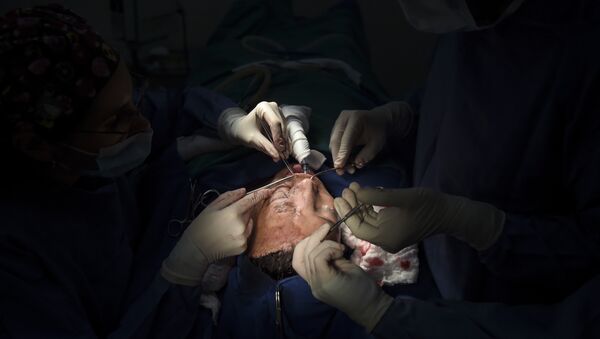Two people were taken to hospital in Upplands Väsby north of Stockholm after being attacked with some sort of caustic liquid. The offender is believed to have escaped in a car after spilling the noxious liquid into his victim's faces.
"A person, a man, left the scene in a car and is currently wanted by the authorities," Anna Westberg of the Stockholm Police told the Swedish newspaper Expressen.
While the Swedish newspaper Aftonbladet reported the liquid to be ammonia, the police have not commented on the incident.
"I cannot say exactly what kind of liquid it was," Anna Westberg told Expressen.
Acid attacks are notoriously difficult for the police to prevent, as offenders have little trouble in procuring the substances needed.
Earlier this year, a 33-year-old man from Linköping was suspected of threatening his former wife with spraying acid into her face, the Swedish daily Göteborgs-Posten reported.
Although acid attacks in Scandinavia have not as prevalent as in Great Britain, there has been a number of high-profile cases. Iranian-born Maria Rashidi, the founder and the chairperson of the Swedish NGO Kvinnors Rätt (Women's Rights) is arguably the best-known one. Rashidi had her face severely disfigured in a sulfuric acid attack by her former husband, who subsequently fled back to Iran. After over 90 restorative surgeries, Maria is still left with poor eyesight and needs help getting around.
"I absolutely do not want to be considered a victim. Instead, I wanted to use this awful event to do something good and positive. I wanted to turn my experience into strength," Maria Rashidi explained to Finnish national broadcaster Yle.
In Sweden, Rashidi is a well-known debater on honor-related violence and women's rights. She has been a vocal critic of how Sweden's first overtly feminist government handles issues such as gender equality and the flip side of the cultural and religious diversity. Among other things, Rashidi suggested that cultural traditions mixing badly with Sweden's gender equality goals prevail in the suburbs with a predominant migrant population.
The use of noxious chemicals, colloquially referred to as "face melters," has become horrifyingly frequent in the UK, rising to more than one incident a day in London alone (from 261 in 2015 to 454 in 2016). The rise in the metropolitan area is mirrored nationally, with growing numbers of people admitted to hospital with acid burns across the UK.



